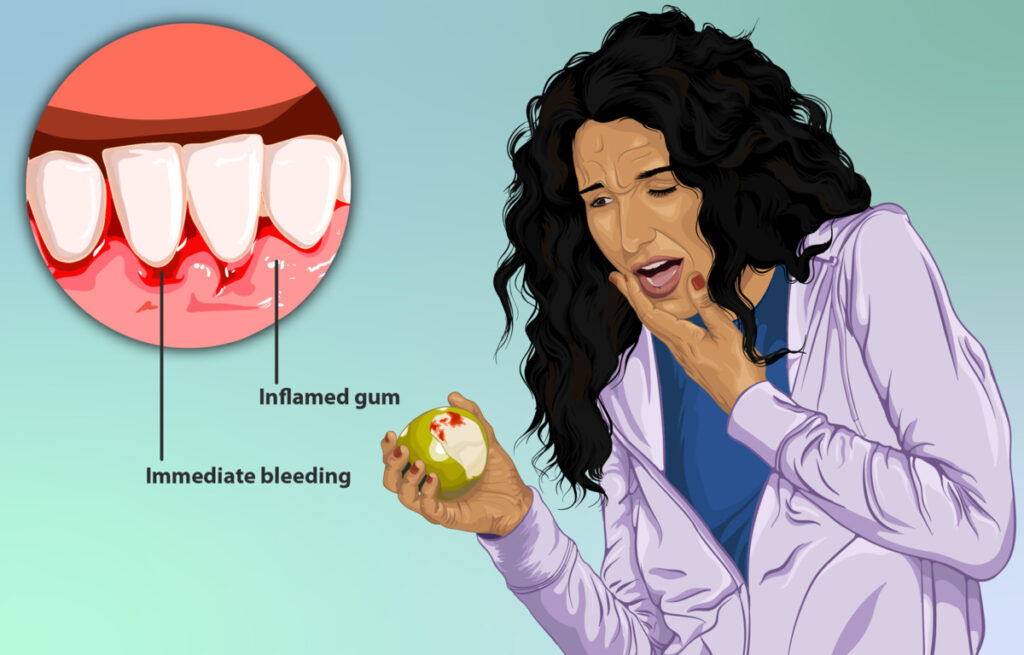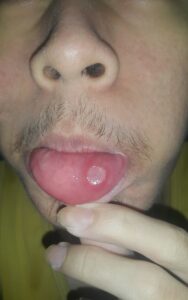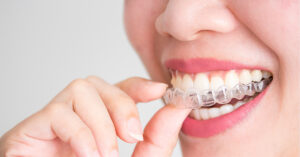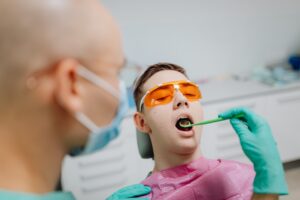If you notice streaks of blood on your toothbrush or in the toothpaste you spit out after brushing your teeth, it could be coming from bleeding gums. Here’s why gums bleed and why you should not ignore this sign.
Is it normal for gums to bleed when brushing teeth?
No, it is not normal for gums to bleed when brushing teeth. Bleeding gums are usually a sign of plaque build-up at the gum line and should be evaluated and treated by a dentist.
Should I see a dentist if my gums bleed?
Yes, you should see your dentist as soon as possible if your gums bleed. Bleeding gums are commonly caused by gingivitis, which is an inflammation of the gums. It occurs due to a buildup of plaque at the gum line or the junction between the teeth and gums. If left untreated, plaque can harden into tartar (here are some tips on removing tartar). Tartar can make gums bleed even more and may ultimately lead to advanced gum disease called periodontitis.
Why do my gums bleed every time I brush my teeth?
As mentioned above, the main cause of bleeding gums is the buildup of plaque at the gumline, which causes gingivitis or gum inflammation. Other possible reasons why your gums bleed include:
- Brushing too aggressively.
- Improper flossing.
- Ill-fitting dentures, braces, or other dental appliances.
- Hormonal changes during pregnancy.
- Medical conditions such as vitamin C deficiency, vitamin K deficiency, mouth infections, bleeding disorders, or leukemia.
- Side effects of medications such as blood thinners.
How do I stop my gums from bleeding when I brush?
You should see your dentist if your gums bleed. They will get to the bottom of what is causing your gums to bleed. Nonetheless, in the meantime, you can do the following if your gums bleed after brushing:
- Use a clean, damp piece of gauze to apply pressure and stop the gum bleeding.
- Place a small piece of ice against swollen, bleeding gums.
- Swish antibacterial mouthwash to reduce inflammation and soothe sore and bleeding gums.
- Rinse your mouth with a warm salt water to speed up healing of your gums.
Here are some more tips and home remedies if your gums bleed.
How to prevent gum bleeding?
The best way to keep your gums healthy and prevent bleeding is to follow good dental hygiene practices. This includes brushing your teeth twice a day for 2 minutes every time using a soft-bristled toothbrush and fluoride toothpaste. Also, use an interdental brush or floss to clean between the teeth. An antibacterial mouthwash can control bacterial growth in parts of the mouth that a toothbrush cannot reach.
Some more tips to prevent your gums from bleeding:
- Be sure to visit your dentist once every 6 months for professional teeth cleaning and plaque removal.
- Eat a healthy diet and limit the amount of sugary and acidic foods and drinks you consume.
- Avoid smoking because tobacco can make your gums bleed or make the bleeding worse.
- Talk to your doctor about taking vitamin supplements to treat any nutritional deficiencies.
- Avoid taking aspirin unless your doctor has prescribed it.
- Use oral irrigation devices on a low setting to avoid irritating or injuring your gums.
- Do not delay seeing your dentist if your dentures or braces do not fit well or make your gums bleed.
If you have fallen behind on routine dental checks or want to consult a dentist because your gums bleed, Express Dentist can help you find a top-rated dentist in your area. Do not hesitate to call us and we will be happy to put you in touch.
About the author
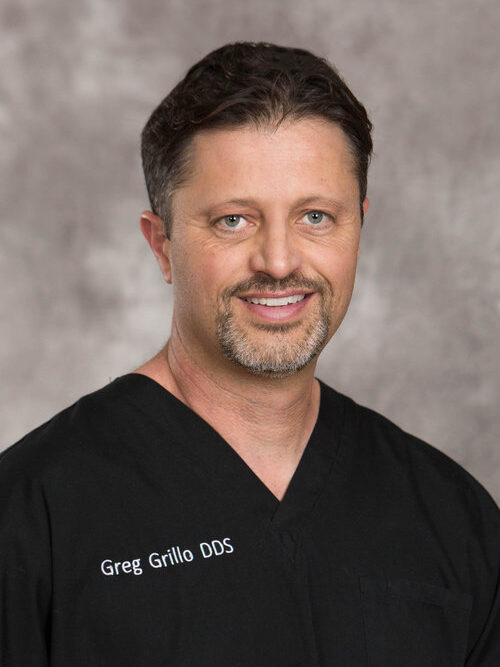
Dr. Greg Grillo
Dr. Greg Grillo DDS studied at the University of Washington where he received a bachelors degree with Honors and later attended dental school on the same campus. Following school Dr. Greg served in the United States Navy as a dental officer. During this time he received advanced training in specialty areas of dentistry while also treating families of members of the military.
As well as sharing valuable information on dentistry and oral health, Dr. Greg remains a practicing dentist to this day. He works with families in the Okanogan Valley where he lives with his wife and three children.
- Dr. Greg Grillo
- Dr. Greg Grillo
- Dr. Greg Grillo
- Dr. Greg Grillo
- Dr. Greg Grillo
- Dr. Greg Grillo
- Dr. Greg Grillo
- Dr. Greg Grillo
- Dr. Greg Grillo
- Dr. Greg Grillo
- Dr. Greg Grillo
- Dr. Greg Grillo
- Dr. Greg Grillo
- Dr. Greg Grillo
- Dr. Greg Grillo
- Dr. Greg Grillo
- Dr. Greg Grillo
- Dr. Greg Grillo
- Dr. Greg Grillo
- Dr. Greg Grillo
- Dr. Greg Grillo
- Dr. Greg Grillo
- Dr. Greg Grillo
- Dr. Greg Grillo
- Dr. Greg Grillo
- Dr. Greg Grillo
- Dr. Greg Grillo
- Dr. Greg Grillo
- Dr. Greg Grillo
- Dr. Greg Grillo
- Dr. Greg Grillo
- Dr. Greg Grillo
- Dr. Greg Grillo
- Dr. Greg Grillo
- Dr. Greg Grillo
- Dr. Greg Grillo
- Dr. Greg Grillo
- Dr. Greg Grillo
- Dr. Greg Grillo
- Dr. Greg Grillo
- Dr. Greg Grillo
- Dr. Greg Grillo
- Dr. Greg Grillo
- Dr. Greg Grillo
- Dr. Greg Grillo
- Dr. Greg Grillo
- Dr. Greg Grillo
- Dr. Greg Grillo
- Dr. Greg Grillo
- Dr. Greg Grillo
- Dr. Greg Grillo
- Dr. Greg Grillo
- Dr. Greg Grillo
- Dr. Greg Grillo
- Dr. Greg Grillo
- Dr. Greg Grillo
- Dr. Greg Grillo
- Dr. Greg Grillo
- Dr. Greg Grillo
- Dr. Greg Grillo
- Dr. Greg Grillo
- Dr. Greg Grillo
- Dr. Greg Grillo
- Dr. Greg Grillo
- Dr. Greg Grillo
- Dr. Greg Grillo
- Dr. Greg Grillo
- Dr. Greg Grillo
- Dr. Greg Grillo
- Dr. Greg Grillo
- Dr. Greg Grillo
- Dr. Greg Grillo
- Dr. Greg Grillo
- Dr. Greg Grillo
- Dr. Greg Grillo
- Dr. Greg Grillo
- Dr. Greg Grillo
- Dr. Greg Grillo
- Dr. Greg Grillo
- Dr. Greg Grillo
- Dr. Greg Grillo
- Dr. Greg Grillo
- Dr. Greg Grillo
- Dr. Greg Grillo
- Dr. Greg Grillo
- Dr. Greg Grillo
- Dr. Greg Grillo
- Dr. Greg Grillo
- Dr. Greg Grillo
- Dr. Greg Grillo
- Dr. Greg Grillo

